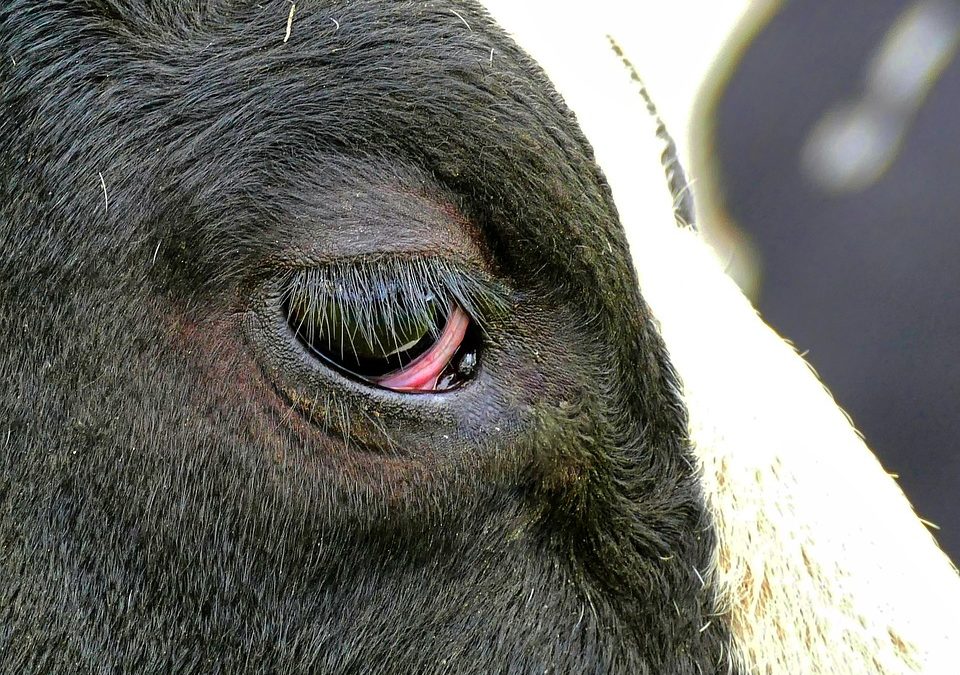What is pinkeye?
Pinkeye is a very painful and bothersome disease of cattle that has changed greatly in recent years. Traditional pinkeye (Moraxella bovis) is a summertime, pasture-based problem, easily treated with antibiotics. Modern pinkeye (Moraxella bovoculi ) is more of a year-round disease,
common in both indoor and outdoor cattle pens. It is difficult to prevent and more difficult to treat with antibiotics. Mycoplasma bovoculi is a less common bacterium but is also a type of pinkeye.
What causes pinkeye?
Pinkeye is caused by a bacterial infection of the tissues of the eye. Irritants such as sunlight, flies, dust, wind, thistles, tall grass and trauma can all contribute to the development of pinkeye. Flies can spread the bacteria from cow to cow while a weakened immune system will also allow the infection to take hold.
What are the symptoms of pinkeye?
Common symptoms include a more pronounced reddish or pink discoloration to the pink part of the eye, while the clear part of the eye turns whitish-grey. Because it is painful, the cow will hold the eye partially closed, and extra tearing will stain the side of the face.
How is pinkeye treated?
Your veterinarian can prescribe antibiotics or a medicated spray specifically designed to treat pinkeye. In some cases a patch or suture is necessary to treat the infection.
How is pinkeye prevented?
Fly control with insecticidals such as ear tags, pour-ons, and back-rubbers can be helpful in controlling traditional pinkeye. Feed ingredients, weed control, and pasture maintenance can also help.
Is there a vaccine for pinkeye?
The bacteria that cause pinkeye have great strain variations. To be effective, the strains in your vaccine need to compatible to those affecting your cows. Because of this, commercially available vaccines can have limited efficacy. Lodi Veterinary Care has developed an autogenous vaccine that contains local strains of the pinkeye bacteria cultured from cattle in your area which makes it effective in preventing pinkeye. Talk to a Lodi Veterinary Care veterinarian for more information.

